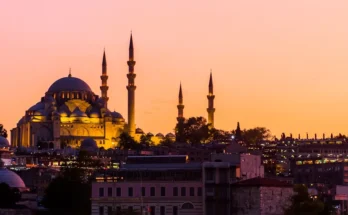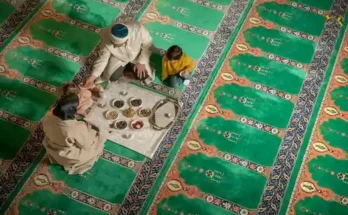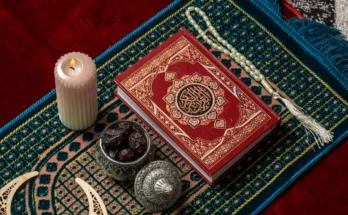Islam is not just a religion—it is a complete way of life. From the deserts of 7th-century Arabia to the skyscrapers of today’s global cities, Islam continues to offer meaning, guidance, and spiritual clarity to billions. It is not confined by time or place. Instead, it has flowed through history, adapting while remaining timeless, shaping civilizations while maintaining purity in message.
But beyond the rituals and practices, what makes Islam so enduring and relevant? To understand its power, we must look at where it began, what it teaches, who exemplified it, and how it respects all of creation regardless of status, color, or gender. Most importantly, we must understand how it still matters today and how it harmonizes, rather than contradicts, with scientific discovery.
A History Built on Revelation:
Islam began in the early 7th century in Mecca, in what is now Saudi Arabia. However, Muslims do not view Islam as a new religion but as a continuation and restoration of the original message sent to all prophets—Abraham, Moses, Jesus, and many others—peace be upon them all. The final revelation, however, came through Prophet Muhammad (peace be upon him), who received the Quran from Allah (God) through the angel Jibreel (Gabriel).
This wasn’t a man creating a religion. It was a man chosen to deliver the final divine message, sealing the long line of prophets.
The Quran, the holy book of Islam, is more than poetry or law—it is divine speech, unchanged since its revelation more than 1400 years ago. It remains in its original Arabic form, memorized by millions, and recited daily by believers around the world. But what makes the Quran truly miraculous is its depth. It addresses theology, law, morality, science, and social issues with a precision that continues to amaze even modern scholars and scientists. It speaks to the soul as much as the intellect, offering both comfort and challenge, timeless in relevance and infinite in wisdom.
Prophet Muhammad (PBUH):
-
A Role Model Beyond Religion
Prophet Muhammad (peace be upon him) is often called the walking Quran because he lived the teachings of the Quran so completely. He was a leader, a husband, a merchant, an orphan, a statesman, and above all, a servant of God.
He taught patience in the face of oppression, forgiveness when wronged, and humility in success. He lived modestly, ate simply, and treated even his enemies with kindness. His farewell sermon was a declaration of universal human rights, emphasizing that no Arab is superior to a non-Arab, and no white is superior to black—except in piety.
-
Champion of Women’s Rights and Social Justice
In a time when women were often buried alive at birth or treated as property, Islam—through the example of the Prophet—revolutionized women’s rights. Women were given the right to inherit, to own property, to seek knowledge, to choose a spouse, and to be treated as equal in the eyes of God.
His teachings gave dignity to the poor, the oppressed, and the enslaved. Islam called for the abolition of racism, the protection of orphans, and the fair treatment of even prisoners of war. It was, and still is, a radical force for justice.
Islam’s Timeless Relevance:
-
A Moral Compass for Every Era
In the past, Islam laid the foundation for golden ages of learning, from the libraries of Baghdad to the observatories of Andalusia. Muslim scholars preserved Greek texts, pioneered medicine, advanced mathematics, and built universities long before the European Renaissance.
Today, in a time of moral confusion, Islam continues to offer clarity. It teaches moderation over excess, contentment over greed, and community over individualism. Its principles of charity (zakat), prayer, fasting, and honesty create a framework for living that fosters inner peace and social cohesion.
And in the future, as humanity faces growing inequality, climate change, and spiritual voids, the teachings of Islam remain powerfully applicable. It advocates for environmental stewardship, economic fairness, and unity in diversity.
-
Equality Without Condition
Unlike man-made systems that grant rights based on class, wealth, or birth, Islam recognizes the intrinsic value of every human soul. It upholds justice without prejudice. The Quran says: “Indeed, the most noble of you in the sight of Allah is the most righteous of you.” (Quran 49:13)
This principle guarantees that whether you are rich or poor, male or female, black or white, born into nobility or simplicity, your worth is based on your character and consciousness of God—not on your external circumstances.
Islam and Science:
Far from being opposed to science, Islam encourages the pursuit of knowledge. The very first word revealed in the Quran was “Read” (Iqra). The Prophet Muhammad (PBUH) said that seeking knowledge is a duty upon every Muslim—male and female. Islamic civilization produced pioneers in algebra, astronomy, chemistry, and medicine, many of whom inspired the very foundations of modern science. Their faith didn’t hinder inquiry; it motivated it. They believed the universe was a sign of its Creator and sought to understand it deeply.
Modern science has uncovered many facts that were alluded to in the Quran centuries ago. The development of the embryo, the expansion of the universe, the protective role of the atmosphere, the existence of barriers between salt and freshwater—all these are described in the Quran in language both poetic and precise.
This isn’t to say the Quran is a science textbook. Rather, it offers signs, encouraging reflection. These signs help readers see that Islam and science are not enemies—they are allies in the search for truth.
Conclusion:
Islam is not bound by time or culture. It is a religion of peace, justice, and balance. Its history is rich, its scripture divine, its Prophet noble, and its teachings as relevant today as they were 1400 years ago.
It defends the rights of women, uplifts the downtrodden, and bridges the gap between faith and reason. It urges us not just to believe, but to think, to act, and to serve. It is not just a religion—it is a complete path to living with purpose.
Whether you’re searching for truth, structure, peace, or meaning, Islam offers it—not by asking you to abandon who you are, but by guiding you to become who you were always meant to be.




